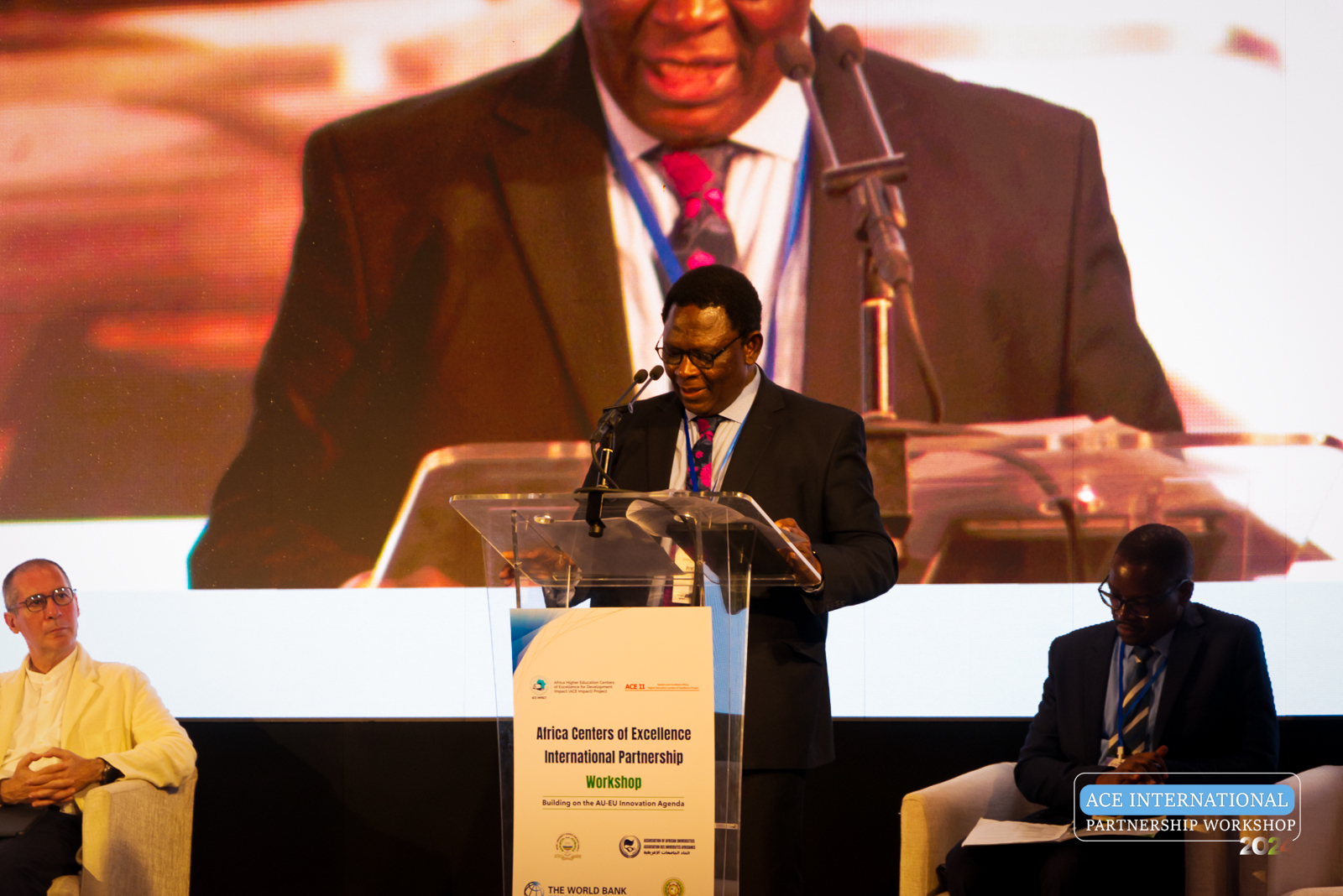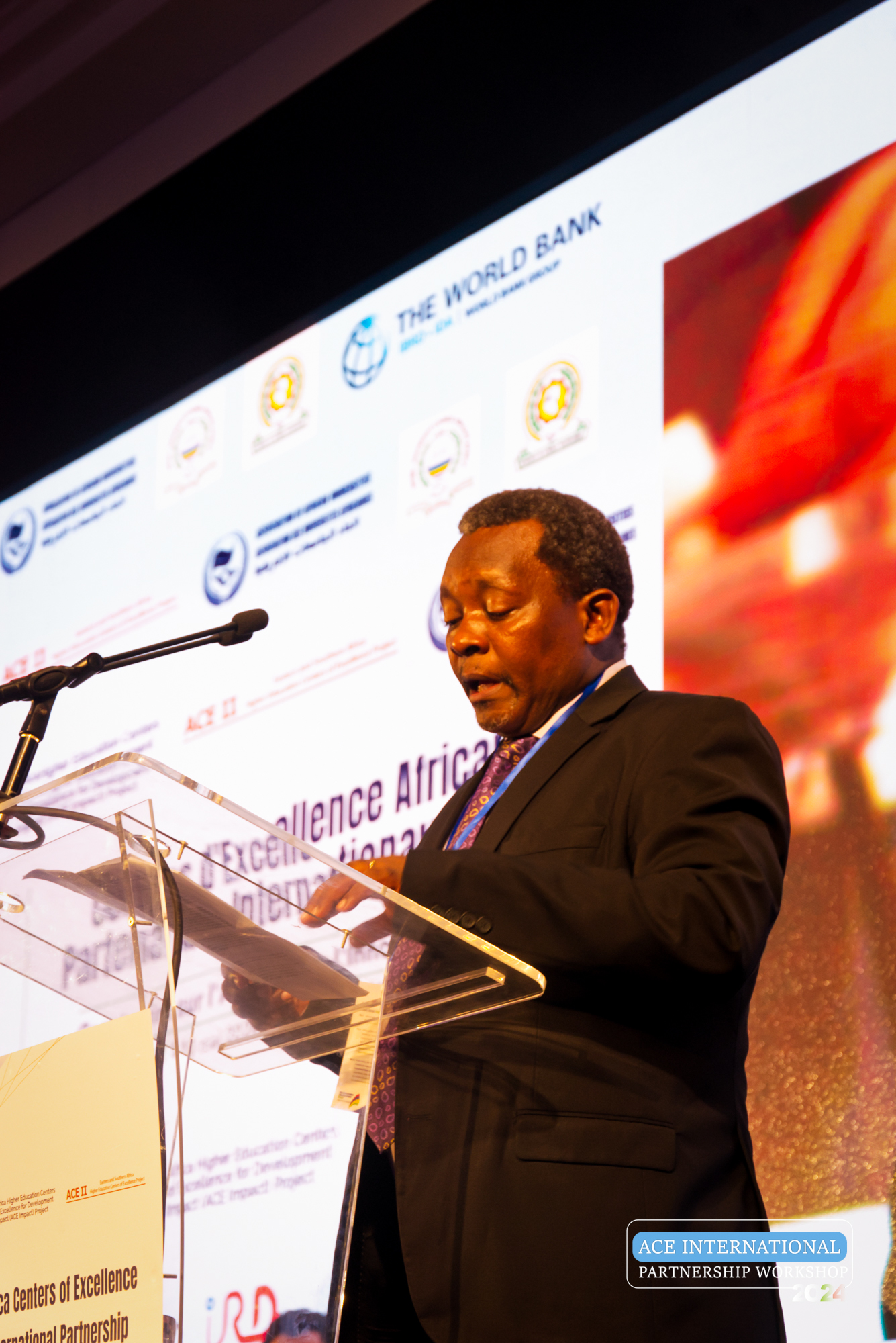Forging Global Alliances – Inaugural Africa Centers of Excellence International Partnership Workshop Currently Underway in Mauritius, May 8-10, 2024
Close to 400 higher education stakeholders from Africa, Europe and other continents have gathered at the Intercontinental Mauritius Resort Balaclava Fort, for the maiden Africa Centres of Excellence (ACE) International Partnership Workshop. Holding from May 8-10, 2024, on the theme- Building Pathways Towards Sustainability through Collaborative Research and Innovation, the workshop marks a significant milestone, creating the needed platform for the forging of new partnerships, reinforcement of existing ones, interaction with the private sector, and deepening of strategies aimed at strengthening the sustainability of the ACE initiative.
The workshop is a culmination of the strategic collaboration between the Association of African Universities (AAU), the Inter-University Council for East Africa (IUCEA), The World Bank, French Development Agency (AFD), and the French National Research Institute for Sustainable Development (IRD). Other key partners include the African Union (AU) and the European Union (EU).
In alignment with the AU-EU Innovation Agenda, adopted in July 2023, the Africa Centers of Excellence International Partnerships Workshop is creating the platform to amplify research and innovation cooperation between Africa and other continents. With a view to creating multifaceted alliances and promoting the joint interests of the participating institutions, the workshop’s programme is carefully crafted to include engaging and insightful panel discussions, pitching sessions with industry players, and parallel thematic sessions, among others.
Addressing the high-level delegation at the workshop, the Secretary General of the AAU, Professor Olusola Oyewole praised the many successes achieved under the ACE program which has driven growth and contributed to the transformation of Africa’s higher education sector. He called on development partners, industry, governments and other key players to catalyse and increase investments in the ACE model and various key initiatives, to advance higher education in Africa to generate the critical mass of human resource required to champion the targets of key blueprints such as the African Union’s Agenda 2063, the global sustainable goals, and the continental education strategy for Africa.

He reiterated the Association of African Universities’ commitment to work jointly with the various higher education stakeholders and institutions to lead this transformation. Prof. Oyewole said, that the AAU operates a values-based approach, underpinned by transparency, accountability, adaptability and good governance and that it was no coincidence that the Association has been the partner of choice for the World Bank and other partners for the first phase of the Africa Centres of Excellence Project and again for the third phase – ACE Impact.
“With a membership of over 400 higher education institutions across the continent and serving as the regional facilitation unit for the ACE Impact project, we are proud of what we have achieved so far, together with our 54 centres from 11 countries and all our partners. On this journey, we have recorded over 29,000 students being enrolled in PhD and MSC programmes, over 79 million externally generated funds, and close to 3000 publications in high impact journals” – he added.
For his part, the Executive Secretary of the Inter-University Council for East Africa, Prof. Gaspard Banyankimbona, recognized the government of Mauritius for hosting the event, and paid a glowing tribute to the World Bank team, represented by the regional director, human development – Dr. Daniel Dulitzky, for their enabling financial and technical support to the ACE programme. Prof. Banyankimbona highlighted the role of the Inter-University Council for East Africa (IUCEA), as being an intergovernmental institution of the East Africa Community mandated to advise, develop and coordinate all matters related to higher education and research in the EAC. In line with this, IUCEA facilitates networking among universities in EAC member states, and with universities outside the region, provide a forum for discussion on a wide range of academic and other matters relating to higher education in east Africa, while facilitating maintenance of internationally comparable education standards to promote the region’s global competitiveness in higher education. Zooming in on its achievement as the regional facilitation unit for the ACE II project, he intimated that the project has recorded tremendous achievement with over 20,000 beneficiaries including Faculty, Masters and PhD graduates, and a total amount of close to 44 million USD raised in externally generated funds. He wrapped up his delivery by assuring the project teams and stakeholders of the IUCEA’s commitment to ensure the project attains its intended development objectives.

Research as a Strategic Tool for Africa’s Economic Transformation
Mr. Hans Stausboll, the Director for Africa at the European Commission’s Directorate for International Partnership, articulated the pivotal role of research in societal and economic transformation. Emphasizing the European Union’s commitment to fostering science, technology, and innovation, he highlighted the significance of initiatives like the “African Research Initiative for Scientific Excellence” (ARISE) program. Under the guidance of the EU and AU, ARISE aims to unlock Africa’s innovation potential by supporting the next generation of scientific leaders. Mr. Stausboll stressed the EU’s focus on enhancing knowledge infrastructure and empowering practitioners to build a critical mass of role models for African researchers. He underscored the importance of aligning EU and AU initiatives to maximize impact and assured the African higher education community of the EU’s readiness to collaborate for global advancement.
Mr. Mathieu Thenaise, the Deputy Director for Mauritius, Agence Française de Développement (AFD) reiterated the institution’s belief in the pivotal role that the Centres of Excellence play in driving social and economic development. He emphasized the imperative of these centers in nurturing a cadre of skilled professionals capable of spearheading transformative change and called for collective action to confront the myriad challenges facing higher education, particularly within the context of programmes like the African Centers of Excellence (ACE), including the crucial issue of sustainability.
For the AFD, investing in the development of competent professionals equipped to lead Africa into a prosperous future is not just a priority but a necessity. Recognizing the interconnectedness of global development, Mr. Thenaise underscored the significance of nurturing talent that can contribute meaningfully to the continent and to the broader international community.
Breaking new ground in Africa’s higher education through the Africa Centers of Excellence Project
Dr. Daniel Dulitzky, the regional director for human development at the World Bank, indicated that the ACE initiative transcends traditional academic boundaries, embodying a beacon of hope and a blueprint for change. At its core is a proactive engagement with the private sector, marking a departure from conventional academia. He said, by involving industry leaders and investors in the research and innovation process, the project aims to identify opportunities for commercialization and foster partnerships to bring research outcomes to the market. He indicated that the project’s focus on key areas such as science, technology, engineering, mathematics (STEM), agriculture, health, environment, and education highlights its commitment to maximizing impact across borders and sectors.

He underscored the ACE programme’s creation of a network of expertise and facilitation of knowledge sharing to encourage the development of innovative solutions and technologies that have commercial potential. Concluding his delivery, he mentioned that as the private sector plays a crucial role in bridging the gap between theory and practice, academia and industry, the ACE programme paves the way for a future where knowledge translates into real-world solutions, driving tangible impact and transformation across the African continent.
The three-day Africa Centers of Excellence International Partnership Workshop underscores the collective commitment of all the stakeholders, from Africa, Europe and beyond to prioritise strategic partnerships to advance research and innovation on a global scale and drive transformative change for the benefit of societies worldwide.
